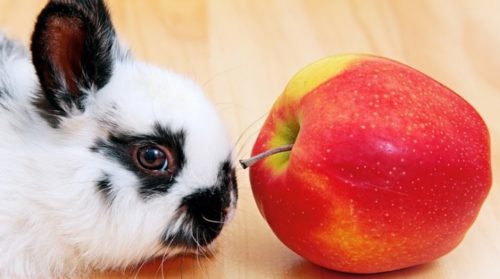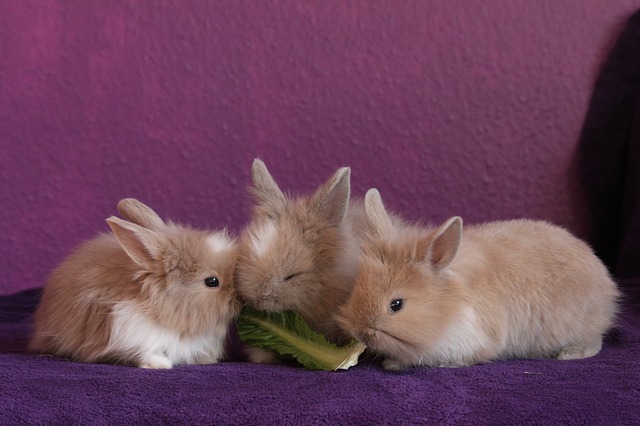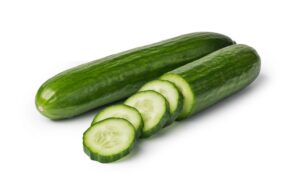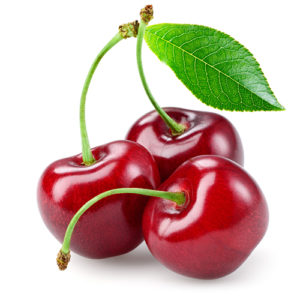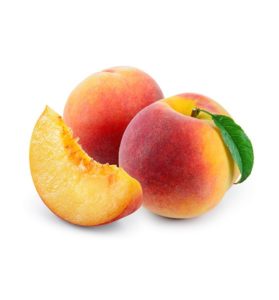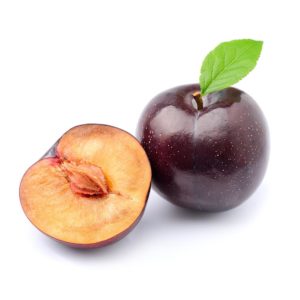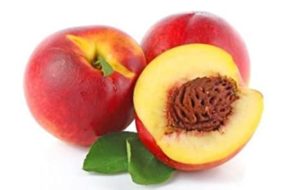Yes A Pet Rabbit Eat Apples! But What parts of Apples Can A Pet Or Wild Rabbit Eat? Can Rabbits Eat Apple Skin, Seed Or Blossoms? Click Now To Learn More!
Continue readingThe Balanced Rabbit Diet Guide – Feeding Rabbits Simplified
Have you ever wondered “What all can my pet rabbit eat? What is the best diet for my pet rabbit?” In the US pet rabbits are considered one of the popular pets closely following dogs and cats. Yet, most pet owners know very little about them.
The first major difference that set pet rabbits apart from dogs or cats is their diet. Rabbits are Obligate Herbivores which means that they can only consume a plant based vegan diet. This means that unlike cats or dogs they can’t be fed canned food plus you must have access to a mix of fresh fruits, vegetables and hay throughout the year.
The ideal diet for pet rabbits is a mix of rabbit pellets, hay and fresh vegetables and fruits.
There are also some Rabbit owners who like to feed a The Pellet Free Diet which may work for certain rabbits but the standard diet and its components are discussed in more detail below.
Rabbit Pellets
Rabbit Pellets are commercially manufactured food pellets specifically developed for rabbits. These are made from of a variety of materials including hay, vegetable products and grains. Any good brand of rabbit pellets is fine as long as it has a high fiber content, minimum of 18-20%.
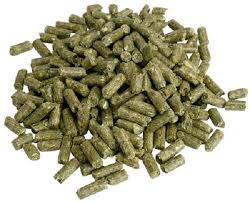
Make sure that the rabbit pellets you choose for your bunny provides a good mix of nutrients like protein, vitamins and minerals essential to a rabbit’s well being.
Keep in mind that the pellets you give to your rabbits are fresh, anything older than 6-8 weeks is no good as pellets may develop molds even if they are kept air tight.
The right amount of pellets for your bunny will keep them well fed and provide the nutrients your bunny needs to grow up and stay healthy.
Remember to not use pellets as treats as your bunny may develop a habit of eating to many pellets and begging for them. Pellets are nutrient dense and may cause obesity if given too much.
How much pellets should I give to my rabbit?
As rabbits get older they tend to become less active therefore their caloric requirements also decrease. That means as your rabbit gets older you need to reduce the mount of pellets in their diet bit by bit.
You should give less and less pellets to a bunny the older they get. Pellets should never be more than 10-20% of your rabbit’s diet.
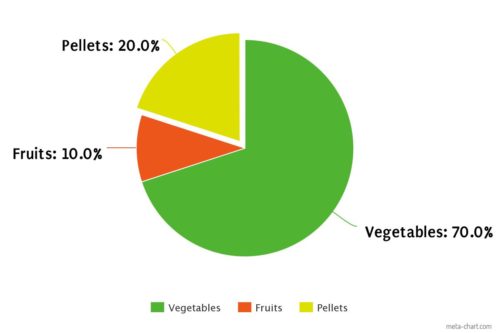
This is essential to keep your bunny from getting obese. You can find a more detailed guide in my post How Much Pellets Does A Pet Rabbit Need At Every Age?
Which brand of rabbit pellet should I give to my rabbit?
The brand of rabbit pellets you choose will depend on what is available at your location.
Some good brands to consider are
Oxbow Animal Health Bunny Basics Essential is available for both young and adult rabbit. This one is would be my recommendation. Please check it using my affiliate link on Amazon.com
Kaytee Forti-Diet Pro Health provides a good chunk of discount on a subscription. Give it a look on Amazon.com
- Supreme Selective Naturals I like this one because its grain free. Available on Amazon.com
Rabbit Hay
The most important part of the rabbit diet is hay. Rabbit hay should be the largest part of your bunny’s diet make up more than 60-70% of their total food intake.
Rabbits have quite a complicated digestive system that needs lot of fiber to keep stuff moving. Hay is also a good food for them to chew throughout the day and wear out their teeth as they keep growing throughout their life.
Placing some hay on top of your rabbit’s litter box will also help you to litter train them as rabbits like to chew on some hay as they are going to the bathroom.
Some breeds of rabbits with thick or long fur can also get hairballs, hay can also help to pass them.
What kind of hay should I give to my rabbit?
Rabbits need different hay during different stages of their growth. For very young rabbits up to 12 weeks old, alfalfa hay is the best it contains high level of protein which is essential for their growth.
For rabbits older than a year timothy hay, orchard hay, oat hay and fresh cut grasses are better as they contain less calcium which in large quantities is bad for their kidney health.
Make sure that the hay you give to your bunny is as fresh as possible. Fresh hay should smell like fresh cut grass and should not have any off smells. To keep your hay fresh for longer store it in a container where air can pass over it. This will help keep the hay dry and prevent any molds from growing.
How much hay does my rabbit need?
Well, that depends. Rabbits come in all shapes and sizes plus hay does not really provide a lot of nutrients to your bunny. I would recommend that you give your adult rabbits more hay than what they can finish each day.
A good estimate is to have a bundle of fresh hay on hand every day that is as big in size as your bunny. This will ensure that your rabbit is getting the freshest supply of hay every day and very little hay is being wasted.
Are there any alternatives to hay for rabbits?
The best alternative for store bought hay would be fresh growing grass, this is ideal for bunny rabbits but we must ensure that there are no chemicals like fertilizers or pesticides applied on that grass.
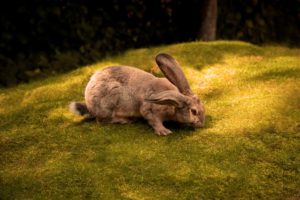
If you have a lawn where fresh green grass is growing, you may choose to let your rabbit graze on it. Trust me this is one of the best treats that you can give to your rabbit.
PS – do not leave your bunny unattended in the lawn, rabbits have been known to jump as high as 6-7 feet and can easily escape from your fence. You should also be wary of predators like dogs, cats or large birds of prey.
Fresh Vegetables & Fruits
This is definitely the most challenging part of feeding a pet rabbit. Bunnies depend on a selection of fresh vegetables & fruits to meet their macro and micro nutrient requirement everyday.
Depending on where you are in the world, the availability of vegetables in your local market may vary hugely. This makes it really hard to know what vegetables are suitable for feeding to a rabbit and what is not.
But worry not, we have you covered. Here is our exhaustive list of the best vegetables & fruits to feed your pet rabbit.
Some Leafy Vegetables That Rabbits Can Eat
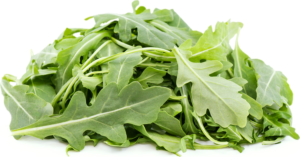
Arugula
Arugula is quite a common vegetable. It can be given to your pet rabbits daily. It is quite similar to Radish, Kale & Cabbage. Although it has a peppery-bitter taste most rabbits I’ve known will happily eat it.
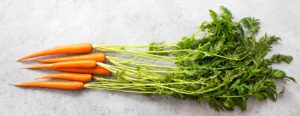
Carrot Tops
As you might know, rabbits do love carrots as much as Bugs Bunny, so if you are feeding carrots which come with the tops then your pet rabbits will love to eat the tops. They have a good amount of Vitamin C as well.
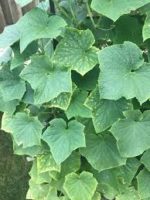
Cucumber Leaves
Cucumber leaves are also a good choice when it comes to feeding your rabbit. They have a high water content so bunnies will chow down on summer days. They do have a velvety surface which may irritate some rabbits.
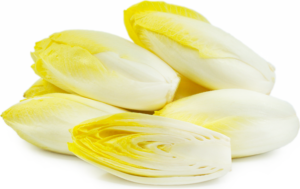
Endive
Endive is a leafy vegetable similar to lettuce. Although it is somewhat bitter in taste, some rabbits do prefer to eat it. All parts of this of this vegetable is suitable for rabbit consumption. It can be given to pet rabbits daily.
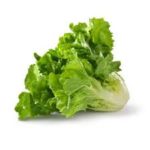
Escarole
Similar to kale in taste and texture, pet rabbits love to chow down of Escarole. This vegetable is quite leafy and contains a fair amount of Vitamin A & C. This can added to your bunny’s daily diet.
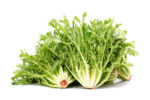
Frisee Lettuce
Although called lettuce, Frisee is more closely related to vegetables like Endive. They have a similar taste but their leaves are curled and look like fern fonds. They are crisp when fresh and very healthy for rabbits.
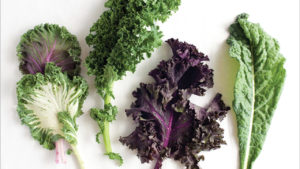
Kale
A staple of rabbit diets everywhere. All varieties of Kale are ideal rabbit food. They have high nutrition value and offer add a good amount of iron and vitamin c to your rabbit’s diet. Can be fed daily.
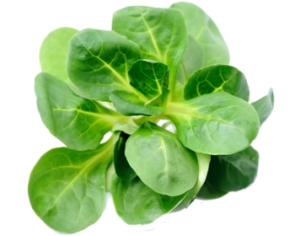
Mache
A soft and small leafed vegetable, Mache can become a regular part of a rabbit’s diet. It has a distinct nutty flavor which some rabbits may really enjoy.
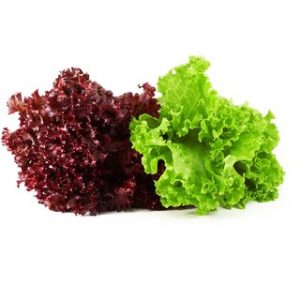
Red Lettuce or Green Lettuce
This is a vegetable that is commonly found in most supermarkets around the world. It is high in water content and has a neutral taste which rabbits like. It can be given to pet rabbits daily.
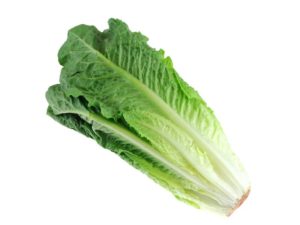
Romaine lettuce
Romaine lettuce is another leafy vegetable that you can give a pet rabbit every day. Its readily available and cheap.
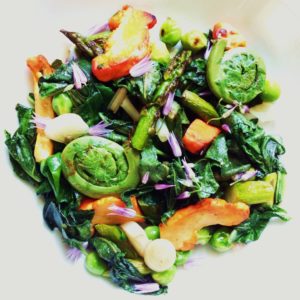
Spring Greens
They are similar to vegetables like cabbage, perfect addition to most rabbit diets. They can be fed to pet rabbits daily without worry.
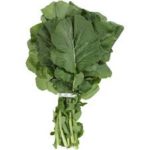
Turnip Greens
These are highly nutritious, they contain a good amount of sodium, potassium & magnesium. All of these nutrients are very important for your rabbit’s brain development and nerve function.
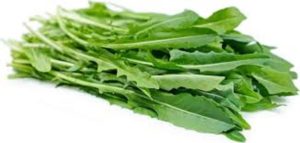
Dandelion greens
All parts of the Dandelion plant are edible to rabbits. Most rabbits will happily chow down on these plus they contain Vitamins A, C & K.

Mint
A common herb found throughout the world, some rabbits love mint other may straight out refuse to eat it. It is said that it helps with bowel problems in rabbits. Any variety can be added to a pet rabbit’s daily diet
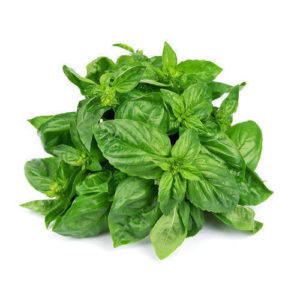
Basil
An excellent source of essential nutrients like Vitamin K, Iron & Manganese. Most rabbits love basil. Most varieties are perfect fine for the consumption of pet rabbits.
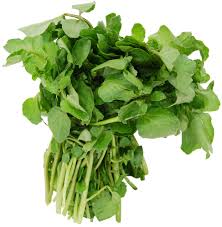
Watercress
Watercress can be found around the world and is a very good addition to pet rabbit’s daily vegetables. It is high in Vitamin A & C.
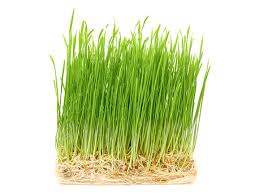
Wheatgrass
Wheatgrass can easily be grown in your kitchen counter in house. High in nutrients and antioxidents it be given to pet rabbits daily.
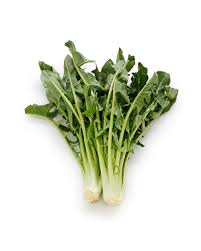
Chicory Leaves
Chicory leaves can be a great source of rare micro nutrients like Thiamin, Niacin & Zinc. Adding Chicory leaves to a bunny’s diet is said to increase their appetite.
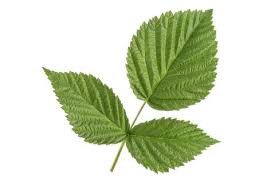
Raspberry Leaves
These leaves are soft and an excellent addition to pet rabbit’s diet. Although hard to find in the markets. They are said to be high in Antioxidents and Vitamins. 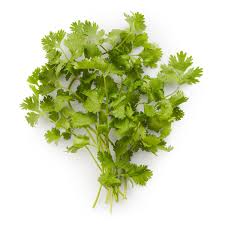
Cilantro
A very common herb that grows around the world, they a fragrant and can help encourage rabbits into eating if they don’t have an appetite. It can be given to pet rabbits daily.
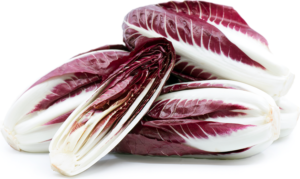
Radicchio
Unlike the name Radicchio is leafy vegetable similar to cabbages. They contain high amount of micro nutrients like Zinc, Copper & Anthocianins which promote heart health in pet rabbits.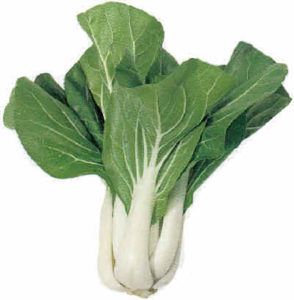
Bok Choy
This vegetable is filled with Vitamin C, E & Beta Carotene. It also contains high amount of the mineral Selenium which is quite good for a bunny’s skin and fur.

Fennel
Both Fennel bulbs and leaves contain high amount of Vitamin C & Manganese which are really good for pet rabbits.
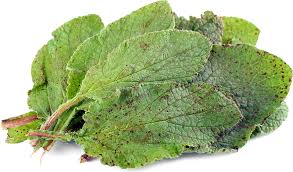
Borage leaves
Another rare but quite nutritious vegetable. Borage leaves help reduce inflammation in pet rabbits as well as promote kidney health.
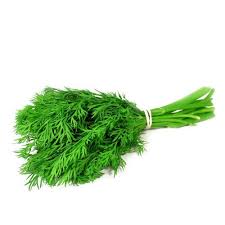
Dill Leaves
A common herb, Dill leaves are rich in antioxidants and a good source of vitamin C, Magnesium, and Vitamin A. They also promote heart health in pet rabbits.
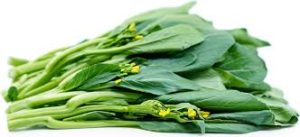
Yu Choy
This leafy green vegetable is a good source of Vitamins B,C and Minerals. Can be easily included in a bunny’s daily diet.

Parsley
A common herb, Parsley contains Vitamins that help with rabbit’s bone & eye health. But, it also contains high level of Oxalic Acid which can cause kidney problems in rabbits. Parsley should not be given to rabbit more than once or twice a week.

Spinach
Called a super food, Spinach contains high amount of nutrients like Iron which play a key role in maintaining healthy blood cells. But it also contains high levels of Oxalic Acid so it cannot be fed to rabbit more than once or twice a week.
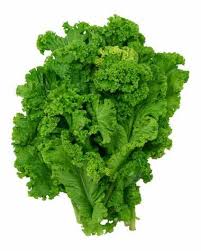
Mustard Greens
Mustard Greens are rich with heart & bone healthy nutrients such as Vitamin K and Folic Acid. Some rabbits quite enjoy the peppery taste of Mustard Greens but the contain Alkaloids therefore should only be given in small qualities a few times a month at the max.
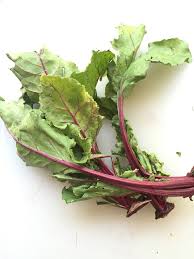
Beet greens
Beet Greens are dense with lots of healthy nutrients like Iron, Calcium, Copper and Vitamin K but these too are high in Oxalic Acid. They can only be given to pet rabbit just once or twice a week.
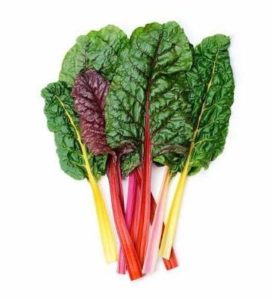
Swiss chard
Swiss Chard can be a great source for Vitamins K,A & C. They can be included in a rabbit’s diet a couple of times a month but no more due to its high Oxalic Acid content.
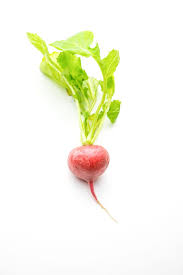
Radish Tops
If your radishes come with their tops then you can definitely give them to your rabbit in small quantities a few times a month due to their Alkaloid content.
Some Non Leafy Vegetables That Rabbits Can Eat

Carrots
I have never seen a rabbit that does not love carrots. They are densely packed with nutrients like Vitamin A as well as lots of Carbohydrates and Fiber. A bit of carrot can be added to a rabbits daily diet but too much is known to cause obesity. Moderation is key.
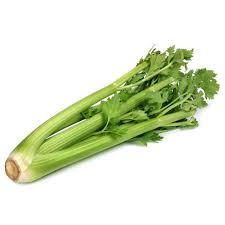
Celery
Celery is a great vegetable for pet rabbits. It has high water content and rich with Vitamins. All parts of Celery can be given to rabbits daily.
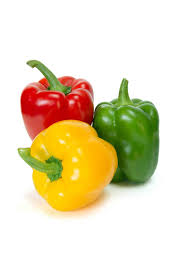
Bell Peppers
All varieties of Bell Peppers are safe for rabbits to eat but you must remove their stalks and seeds first as they might be spicy or bitter. Only a small quantity of Bell Peppers is recommended as it could be difficult for rabbits to digest to much.
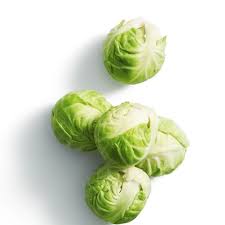
Brussel Sprouts
They are another great option for pet rabbits as they are high in Fiber & Fat content but only a small amount must be given as these too are hard for rabbits to digest.

Cabbage
All colors and varieties of Cabbage can be fed to pet rabbits. In some rabbits Cabbage can cause gas and digestive issues so only a moderate amount may be given to your bunny.
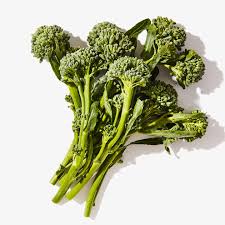
Broccolini
Both the stems and heads of Brocolini can be given to pet rabbits in small quantities. They are rich with Vitamin A, Iron & Folates which promote blood health in Pet rabbits.
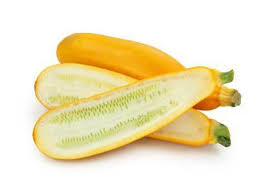
Summer Squash
Also known as Yellow Squash, this vegetable is jam packed with lots of different nutrients such as vitamins A, B6, C, riboflavin, phosphorus, and potassium. Since it has a high water content it is known to cause soft stools in rabbits so only give a small amount of Summer Squash to your rabbit after removing the center which contains the seeds.
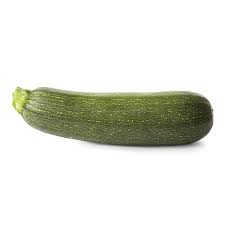
Zucchini
Zucchihi is quite similar to a squash and is high in water content. It is good for digestive health in rabbits. A small amount after removing the center seeds can be fed to rabbits.
Cucumber
Cucumbers are rich in minerals as well as dietary fiber. They are a low calorie choice for a rabbit’s meal but be careful of overfeeding as it can cause soft or runny stools.
Some Fruits That Rabbits Can Safely Eat Are :-
Apple
Apples are rich in Vitamin C & K plus it contains lots of Dietary Fiber which is quite helpful for rabbits. The seeds and stem must be removed as inedible. Rabbits can eat both red and green apples.
Cherries
Cherries are another fruit that some rabbits adore. It is a good source of vital minerals like Potassium, Copper & Manganese.
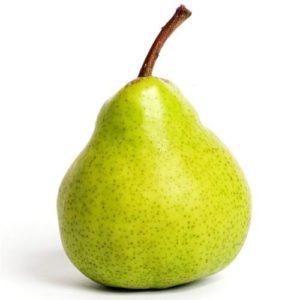
Pear
Pears are another great fruit to add to rabbits diet. They are rich in Vitamin C and contain quite a bit of dietary fiber. It can be given with the peel to rabbits if they are organic.
Peach
Packed with anti oxidants & rich in minerals. Most rabbits love the taste of peaches. It is also said to improve fur texture in rabbits. Just remember to remove the stones before you give it to your rabbit.
Plum
Plums are low in calories and contain lots of healthy vitamins that are good for pet rabbits. The pit needs to be removed before you give these to rabbits. Dried plums or prunes are not recommended for rabbits
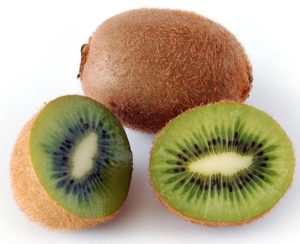
Kiwi
Kiwis also known as Chinese Gooseberries are small berries that pack a punch of tangy flavor. The contain a good amount of Vitamin K, E and Folates. Kiwis should be peeled when giving them to pet rabbits.
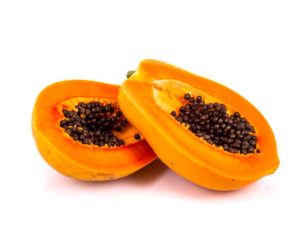
Ripe Papaya
Papayas can be given to rabbits when they are ripe. They are a good source of Potassium and Vitamin C. Papayas need to be peeled and the seeds need to be removed. Papayas are good for the digestive health of your rabbit.
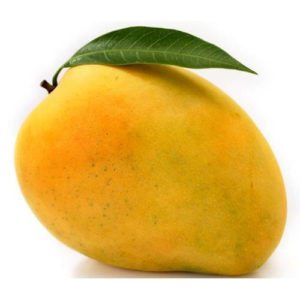
Mango
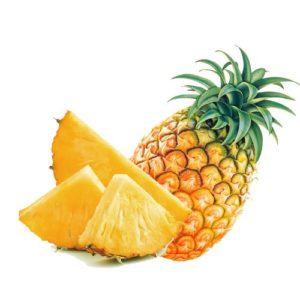
Pineapple
These are filled with syrupy juice and rabbit love them. Pineapples are a great source of Vitamin C & Manganese. The best way to prepare pineapple for rabbits is by peeling off the skin and cutting it down to thin slices.
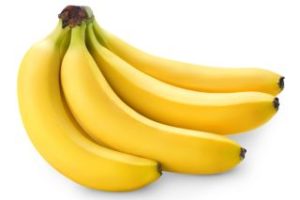
Banana
This is the universal favorite fruit for all rabbits. Bananas are rich in Vitamin B6 and lots of other nutrients. Rabbits adore it for its mushy texture and sweet taste. Just peel it and hand feed it to your bunny.
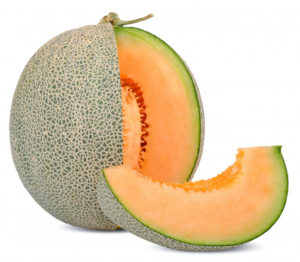
Melons
Also called called Cantaloupes are a good low calorie fruit for pet rabbits. Each cup contains only 53 calories. They are also easy to prepare, just peel the skin and chop into slices.
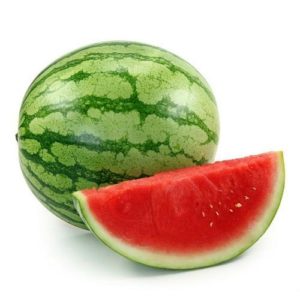
Watermelon
Made mostly of water, watermelon is an ideal fruit for pet rabbits. They are incredibly easy to slice up and very low calorie. Although Rabbits can eat all parts of watermelon safely, seeds and skins. It is best to just remove the skin.
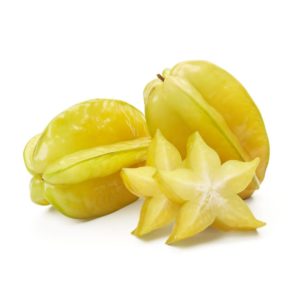
Star Fruit
High in Vitamin C & B5, Starfruits are amazing because there is no prep required to given them to rabbits. Just slice it if you want or you can just give it whole.
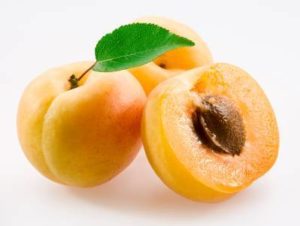
Apricots
Apricots are great for pet rabbits because they are low in calories and contain many micro nutrients. I can be given to rabbits with the peel but the stone (seed) must be removed.
Nectarine
Nectarines are a great source of Potassium and Beta Carotene which are essential nutrients for pet rabbits. You can give nectarines to pet rabbits with the peel on or without.
How Much Vegetables & Fruits Does My Rabbit Need?
Vegetables and fruits are an essential part of a rabbit’s diet. Since hay which has very little nutritional value makes most of the bulk in a rabbit’s diet, rabbits depend on vegetables and fruits to fulfill their micro nutrient needs.
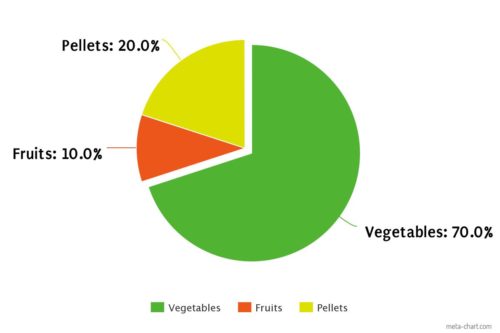
About 70% of your rabbit’s nutrients must come from vegetables. This cannot be skipped or adjusted in a healthy rabbit diet.
Water
Just like us humans, bunny rabbits need to drink water to live. Compared to other animals their size, rabbits tend to need more water. An adult bunny should be drinking 1.5 to 5 ounces per 2.2 pounds or 50 to 150 ml/kg by body weight.
Provide as much water as you rabbit and change it everyday. Give your bunny the same kind of water you are drinking, whether it is filtered tap water or packaged.
Bowl vs Bottle For Rabbits?
Even though drinking from a bowl is much more natural for a rabbit, we all know that they love to toss their bowls and spill the water.
That’s why it is more convenient for your rabbit to drink out of a water as it creates much less mess in their enclosure.
But remember, you cannot give the bottle to your rabbit right away. Drinking from a bottle is a skill your bunny has to learn.
Start out by giving them both the bowl and the water bottle as your teach them how to drink.
Lean more on my post on How To Train Rabbits To Drink From A Water Bottle?
Treats
Lorem ipsum dolor sit amet, consectetur adipiscing elit. Ut elit tellus, luctus nec ullamcorper mattis, pulvinar dapibus leo.
Catagories
- New To Rabbits (16)
- Rabbit Behavior (9)
- Rabbit Care (18)
- Rabbit Diet (12)
- Rabbit Facts (10)
